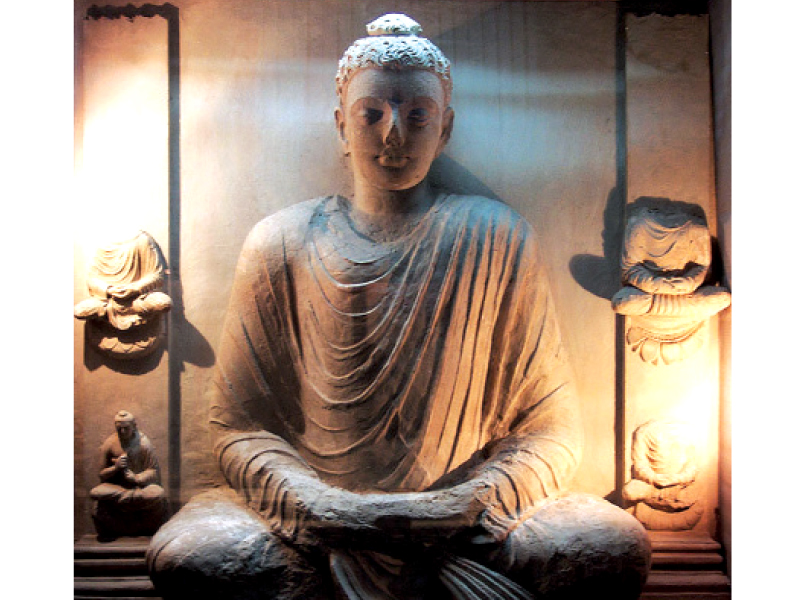
With a pitch-perfect American accent and confident tone, 11-year-old Bushra Ali, a seventh grader at the Heavy Industries Taxila Education City (HITEC), didn’t give off the impression that she was in conversation with the topmost US diplomat in Pakistan.
“They have a Main Street here,” she told US Ambassador Richard Olson, referring to a group of shops that had been excavated at Sirkap, an archaeological site in Taxila. “But I wondered how this could be a Main Street when there was no shopping mall at its end,” she added.
Her comment, an awkward introduction to modern-day consumerism amidst the ruins of the ancient Indo-Greek city, drew laughter from the audience.
The friendly nature of her conversation with the ambassador was reflective of the camaraderie most US-Pakistani exchange student alumni shared when speaking about their experiences.
Ali and 12 of her colleagues from HITEC had gone to the US for an educational and cultural exchange tour in December 2012. On Wednesday, roles reversed as they hosted the US ambassador and a group of US students and instructors, who were visiting Sirkap and the Taxila Museum.
It is the first time in almost ten years that a group of US students is visiting Pakistan on an official tour.
The group, led by Professor Michael Hannahan, comprises two faculty members and five University of Massachusetts Amherst (UMass Amherst) students who have previously interacted with Pakistani students in the US through a Study of US Institutes (SUSI) exchange programme.
Olson said Sirkap was evidence of Pakistan’s vast multicultural history, which the US as a partner wanted to help celebrate.
Tim Shea, a student at UMass Amherst set to graduate next month, has been working with the University of Massachusetts Civic Initiative’s Pakistani Young Leaders Programme for the past three years. The programme brings 25 Pakistani undergraduate students together with their US counterparts to discuss public policy and democracy.
Shea said he found the Pakistani students to be very curious, adventurous and impressive, dispelling earlier fears of discrimination because of his race.
US student Chris Sluter termed the occasion he met with Pakistani students through the SUSI programme as one of the “most rewarding summers” of his life because “so many stereotypes were dismissed on both sides.”
In addition to partaking in engrossing discussions on democracy and religion, Sluter said he had observed a fast during the month of Ramadan with his Pakistani counterparts.
He said the students on both sides were able to forge strong friendships, which eventually led to the US visit to Pakistan.
The US government has contributed more than USD$1.5 million to historic preservation projects throughout Pakistan.
Published in The Express Tribune, April 11th, 2013.
COMMENTS (1)
Comments are moderated and generally will be posted if they are on-topic and not abusive.
For more information, please see our Comments FAQ

















Indo-Greek city?